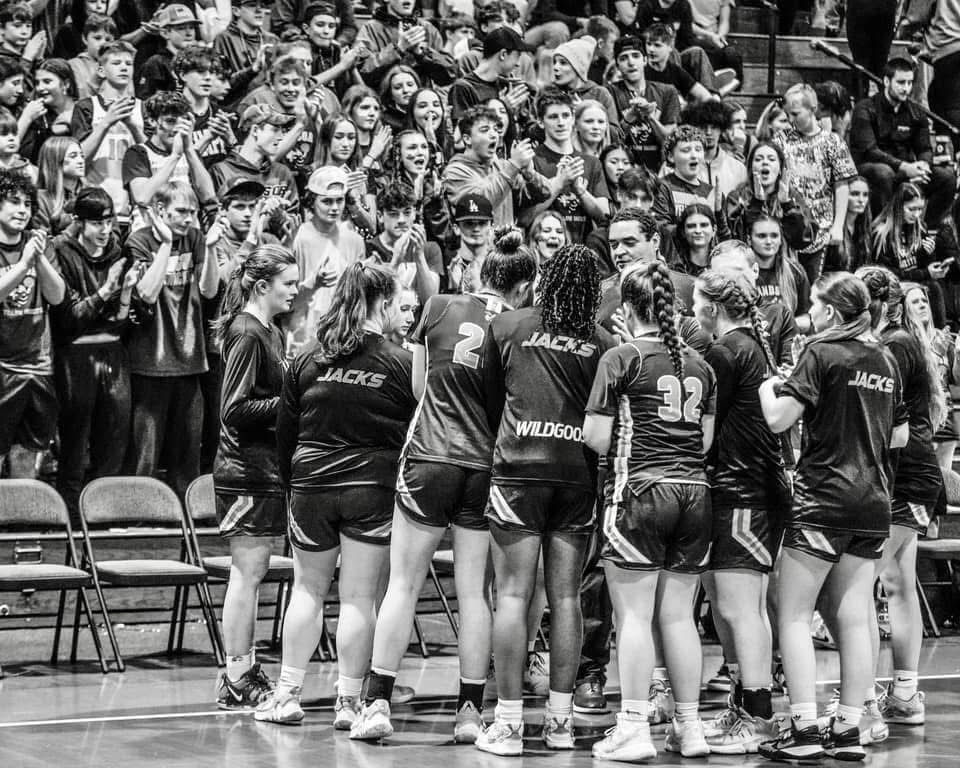- therockwoodagency
- Aug 1, 2025
- 4 min read
Welcome to the first edition of Pound The Rock - a candid Q&A series where we tackle the real questions families are asking about the youth basketball world. This isn't fluff. It's the conversation you wish you had earlier.
Let's jump into the top 10 questions I get from families every week.
When should my kid start playing AAU?
It depends on the why. If your child loves the game and wants more competition and experience, AAU can be a great tool - as early as 3rd or 4th grade. If your only goal is exposure, hold off. College coaches aren't watching 5th graders. The early years should be about building habits and passion.
Is AAU necessary to get recruited?
In a rural area like Vermont, AAU becomes even more important. Most college coaches aren't driving out to local high school gyms in remote towns - they're at high level tournaments and NCAA live period events. If your goal is to get recruited, AAU gives you that stage. You still need the skill, grades, and film, but without access to the right events, you may never be seen.
How do I choose the right AAU team?
Look for development over drama. You want a program that:
- Focuses on growing your game
- Has a strong, supportive coaching staff
- Bases playing time on merit, not politics
- Clearly communicates with families
- Has a track record of helping players improve or move on
Avoid teams where the roster is full of favorites, egos, or players who aren't held accountable.
How many teams should we try out for?
Ideally 2-3. Enough to compare environments. That said, in our area, many players are driving 1.5 to 2 hours just to find programs that compete in high level tournaments and give kids true exposure. That travel commitment is real - and it's part of the sacrifice. If you're going to make the drive, make sure it's to a team that develops players, not just collects them.
Is individual training more important than team play?
You need both. Training build your skill. Games test them under pressure. But here's the reality: If you're not working on your weaknesses in training, games won't fix them. In Europe, it's widely known that players train far more than they play, with a huge focus on footwork, decision making, and fundamentals. That should be the standard here too - especially rural areas where game exposure is limited. Skill gives you options. Games give you reps. The work you put in alone is what seperates you.
Do we need a highlight reel?
Yes - but be strategic. A 2-3 minute video can open doors, but if your high school or AAU team isn't drawing college coaches, film becomes even more important. Coaches want to see:
-Basketball IQ
-Hustle plays
-Defense
-Decision making
-Unselfishness
Don't rely on flashy mixtapes. Sometimes full game film tells the truest story
At what age should we start the recruiting process?
Start building habits early - grades, discipline, and communication. Around sophomore year, players should begin indentifying schools that fit their goals (academically and athletically) and start reaching out. Send emails. Share film. Express interest. If you're waiting for coaches to magically find you - you'll be waiting a long time.
What's the biggest mistake families make in this process?
They don't understand the landscape of the recruitng process - what it takes, how it works, or where they stand. Many assume talent alone will do the work. But without:
-Clear communication
-Real skill development
-Game experience in competitive settings
-Exposure opportunities (especially in rural areas)
..recruitment won't happen. Families need to be educated, realistic, and proactive.
What role should parents play in all this?
Be supportive, but realistic. In a rural area, it's harder to be seen - fewer tournaments, less media coverage, and longer travel to quality programs. That means parents often have to invest more (time, gas, money) to get their child the same opportunities. Support your athlete emotionally and logistically, but also understand their current level - not everyone is a D1 player, and that's okay. Be encouraging, but honest.
How do I know if my kid is "good enough" to play in college?
Here's the truth: If they have a high skill level and they play defense, they can play somewhere in college. There are over 1,700 programs across all levels. The better your overall skillset - shooting, ball handling, decision making, and defense - the higher your ceiling. Coaches can work with effort and toughness, but they can't teach a motor or build skill overnight.
Final Word
The basketball journey isn't one size fits all. That's why Pound The Rock exists - to give you honest, clear answers that help families make smart decisions without the hype.
Got a burning question we didn't cover? Drop it in the comments or DM us - we'll include it in a future post.
Until then - keep showing up, stay coachable, and trust the grind.
Pound The Rock.




